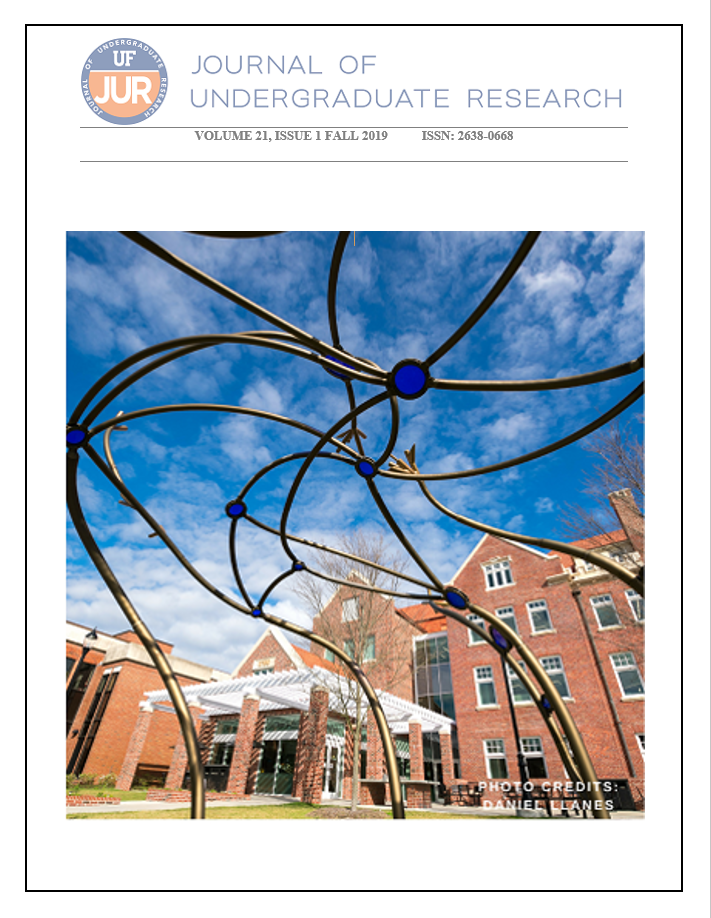Implicit Attitudes Toward Foreign Accents
DOI:
https://doi.org/10.32473/ufjur.v21i1.108524Abstract
Over the past 20 years, the Implicit Attitude Test (IAT) has become a robust paradigm for evaluating unconscious biases about socially sensitive topics (implicit attitudes) in a way that avoids social desirability bias. It has been widely applied to the psychology surrounding race, gender, and other social characteristics, and is a potentially useful tool for linguists particularly in studying the effects of dialect and accent. This study demonstrates an application of the IAT to accents, particularly examining implicit attitudes about Chinese accented English relative to Standard American English. The study evaluated participants’ implicit attitudes about Chinese accents using the IAT, measured their explicit attitudes using the Speech Evaluation Instrument (SEI) developed by Zahn and Hopper (1985), and recorded self-reported rates of exposure to Chinese accents. It found that participants had both implicit and explicit attitudes toward Chinese accented English that were significantly negative relative to American English. It did not, however, find a correlation between participants’ explicit and implicit attitudes. There was a weak correlation between implicit attitudes and self-reported rates of exposure to Chinese accents, although the interpretation of this finding is unclear.
Metrics
Downloads
Published
Issue
Section
License
Some journals stipulate that submitted articles cannot be under consideration for publication or published in another journal. The student-author and mentor have the option of determining which journal the paper will be submitted to first. UF JUR accepts papers that have been published in other journals or might be published in the future. It is the responsibility of the student-author and mentor to determine whether another journal will accept a paper that has been published in UF JUR.

